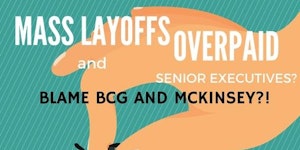New Report Highlights Economic Challenges Facing
Asian Americans and Pacific Islander Seniors in New York
WASHINGTON, D.C., September 1, 2016 – The Asian American Federation, with primary funding support from AARP, released a new report, Asian American Seniors in New York City: An Updated Snapshot, highlighting the demographic changes and economic challenges facing New York City’s fastest-growing senior population. Asian Americans represent 16% of all seniors ages 50 years and older, yet programs and resources available to Asian seniors have failed to keep pace with this growth. When it comes to New York City’s social service funding, for example, only 2.7% went to senior programs focused on Asian seniors.
Jo-Ann Yoo, executive director of the Federation, said, “Since our 2003 report on Asian elders, the size and composition of our senior population have changed dramatically. Our updated report underscores the reality that the current capacity of social services is not nearly enough to meet the needs of this population. What we hope this report offers is some concrete ways in which our city and state leaders can begin to build real infrastructure to serve our seniors.”
“AARP proudly supports the Federation’s report revealing insights into the rapidly-growing community of Asian Americans and Pacific Islanders age 50-plus. We hope this report will continue to debunk the model minority myth and be used by individuals, community-based organizations, nonprofit groups, media, funders, and policymakers to build the case for funding, policies, legislation, and advocacy to improve their lives,” stated Daphne Kwok, AARP’s Vice President of Multicultural Leadership, Asian American & Pacific Islander Audience Strategy.
Key findings of this report include:
- Growth in the Asian senior population in New York City is driven by Asian seniors immigrating late in life and by Asian immigrants aging into senior status.
- Major shifts in demographics are changing the ethnic mix of the Asian senior population in New York City. South Asian and “Other” Asian groups have senior populations that have more than tripled in size from 2000 to 2014.
- The high rates of limited English proficiency among Asian seniors contribute to increased social isolation.
- The diversity of languages spoken in the Asian community makes outreach and provision of services a great challenge.
- Asian seniors in New York City are less well-educated than Asian seniors nationally and other seniors in New York City. As a consequence, Asian seniors are more likely to be poor and low-income than Asian seniors nationally and other seniors in New York City.
- Because some Asian seniors immigrated later in life, they are less likely to have health insurance coverage and to receive Social Security benefits than other seniors.
In order to address the increasing needs among Asian seniors, the Federation makes the following recommendations to the City:
- Increase the resources available for programs serving Asian seniors.
- Build capacity within Asian-led senior programs, which are more likely to provide culturally and linguistically appropriate services for Asians seniors.
- Ensure that outreach to Asian seniors is conducted in-language and through trusted information sources for each community, including ethnic media and community-based social service organizations.
- Alleviate poverty by increasing access to social safety nets for more recent arrivals.
- Increase access to adult literacy and job skills programs for low-income Asian seniors who are still active in the labor force.
- Offer employment and volunteer opportunities for Asian seniors in order to increase their income and decrease their social isolation.
- Create affordable senior housing, including culturally-appropriate assisted living facilities.
“We have seen the Asian senior population double since 2000,” said Howard Shih, research and policy director of the Federation. “With Asian seniors now comprising 16% of New York City’s senior population, we can no longer ignore their needs. We must address their language, health, and housing needs – among all the others – if we hope to support their longevity.”
Beth Finkel, AARP New York State Director, added, “Like the Federation, AARP is fighting to increase funding for transportation services and improve job opportunities and affordable housing for older city residents while combatting social isolation and elder abuse. We need our leaders to acknowledge changing demographics and implement policies that make New York a better place to live, work, play, and age. The City would be wise to heed the recommendations of the Federation’s report.”
